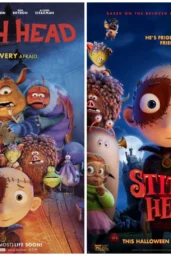I remember buying my first DVD—The Godfather, 1999, a two-disc set with a booklet thicker than some modern screenplays. The weight of it meant something. Ownership. Permanence. A thing you could hold, lend, or (God forbid) resell.
Microsoft’s abrupt shuttering of its Movies & TV storefront this week—no warning, no ceremony—should surprise exactly no one. The company’s support page now reads like a eulogy for a concept we’ve been mourning for years: “You can continue to access your purchased content.” Note the phrasing. Not “your movies,” but “your purchased content.” A sterile, corporate hedge against the inevitable day when even that access flickers out.
This isn’t new. The tech giants have been softening us up for this moment for a decade. Remember Ultraviolet? The “buy once, watch anywhere” fantasy that collapsed into a graveyard of broken links? Microsoft’s storefront, launched in 2006, outlasted it by a few years, but the writing’s been on the wall since streaming ate physical media’s lunch. What’s galling isn’t the shutdown itself—it’s the shrug that accompanies it. No refunds. No transfers (unless you’re in the U.S. and lucky enough to use Movies Anywhere). Just a polite reminder that you never owned a damn thing.
The studios love this, of course. Why sell a film once when you can rent it to the same customer every year via a rotating carousel of subscription services? And let’s not pretend this is about “convenience.” It’s about control. A DVD doesn’t vanish because a licensing deal expired. A Blu-ray doesn’t buffer. But your digital library? That’s a privilege, not a right.
Microsoft’s exit is just the latest domino to fall. The real tragedy isn’t the loss of another storefront—it’s the quiet erosion of the idea that art is something you can keep.
So dig out those old discs while they still spin. Or start hoarding hard drives. Either way, remember: In the digital age, you’re not a collector. You’re a tenant.












